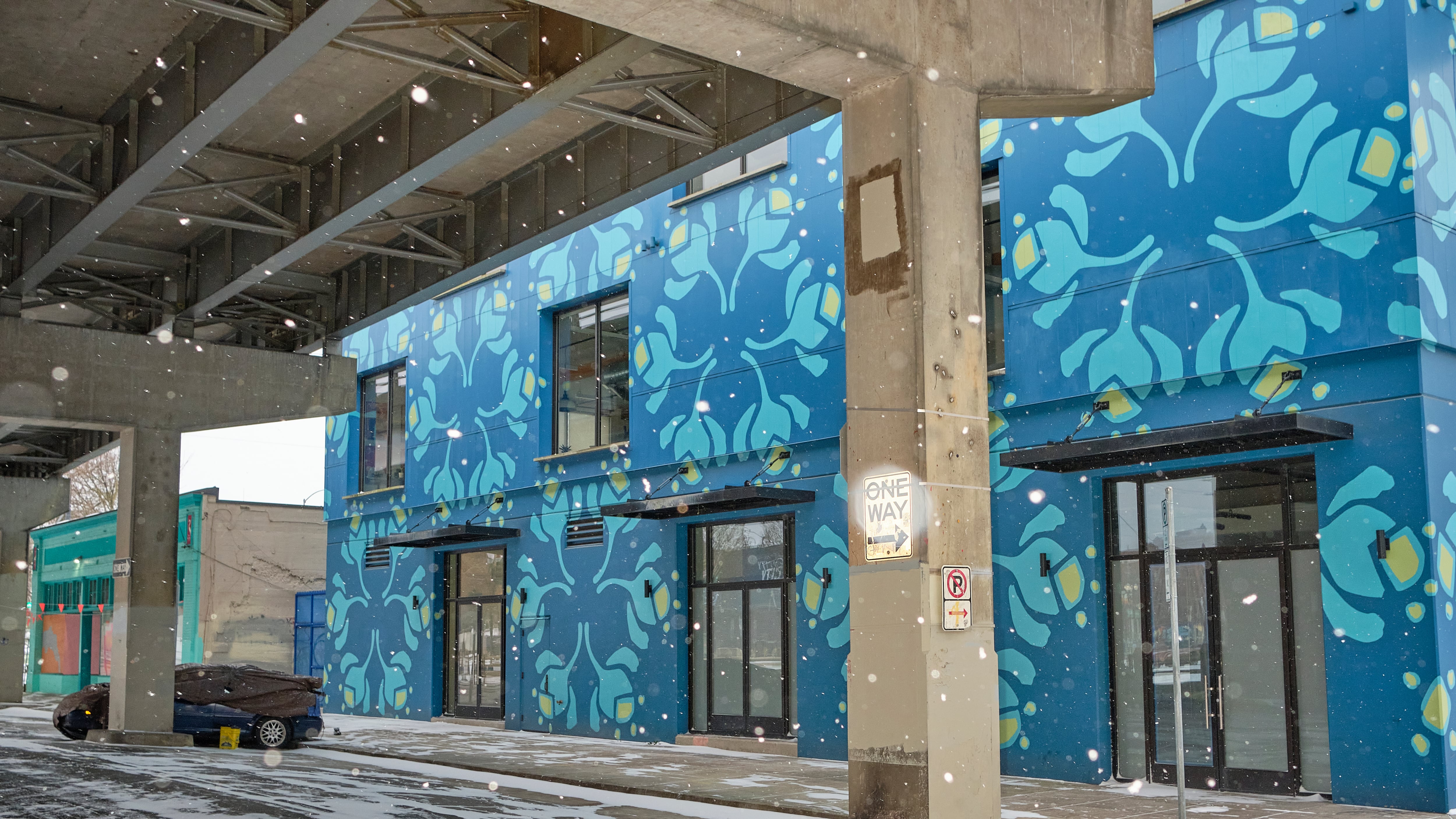A California lender has sued Portland real estate developer Kevin Cavenaugh for allegedly defaulting on a loan.
Royce So, a California-based trustee of TMR Solo 401k Trust, filed the lawsuit in Multnomah County Circuit Court on March 20, demanding more than $360,000 from Cavenaugh and his LLC, Hug(3) Sale, for allegedly failing to repay a $300,000 loan.
According to the lawsuit, Cavenaugh used the loan to purchase a century-old building on Northeast Sandy Boulevard that currently houses Nam Phương Market, a family-owned Vietnamese grocery store. Cavanaugh has not yet redeveloped the property.
The lawsuit marks second default by Cavenaugh, one of Portland’s most distinctive developers. He defaulted on another loan in fall 2023, which sent The Tree Farm—a landmark blue office building next to the Morrison Bridge on Portland’s Central Eastside, designed by Cavenaugh’s firm, Guerrilla Development Co.—to the auction block in February.
According to the new lawsuit, So’s company loaned $300,000 to Cavenaugh to purchase a Northeast Sandy property in March 2022. Cavenaugh’s company bought the building days after obtaining the loan.
Payment due the next March never came, the lawsuit alleges. So served Cavenaugh, who personally guaranteed the loan, with a notice of default in December. Interest accrued during the loan’s two years by more than $60,000, and continues to nearly $150 per day.
Cavenaugh says So isn’t the only investor eyeing legal action against him. “It’s like I’m a school teacher, and there’s three kids that are just acting out, let’s say,” Cavenaugh says. “I have to spend all my time on those three kids, and I’ve got an overcrowded class of 45 kids, and I feel really bad that 42 are not getting proper attention.”
Cavenaugh attributes his troubles to the pandemic and its fallout. Not only have construction costs and interest rates soared in the four years since then-Gov. Kate Brown declared COVID-19 lockdown restrictions, but Portland’s commercial real estate market still struggles to attract customers. Cavenaugh says losing tenants in 2020 from one of his former holdings, The Fair-Haired Dumbbell building on Northeast Mazrtin Luther King Jr. Boulevard, hurt him.
“People talk about it like a body blow, like, ‘It was tough to take that body blow of the pandemic,’ or of interest rates, but this is like a 1-2-3-4 punch in sequence that has me standing here with my bell rung,” Cavenaugh says.
Cavenaugh hoped to renovate and sell the Sandy property, while keeping Nam Phương Market in the building, where it has operated for more than 40 years. He lost a prospective tenant for some of the building’s space, however, which damaged his financial plan.
Cavenaugh says the financial troubles he and other Portland developers face are reminiscent of the Great Recession of 2008.
“This current recession, unless you have zero debt or own your buildings free and clear, unless you’re like a third- or fourth-generation land owner—and Portland has plenty of those—but if you’re not, you’re screwed,” Cavenaugh says. “You’re in a lot of hot water right now, whether it ends up in Willamette Week or not. 2024 is not going to be a pretty year for the industry.”
